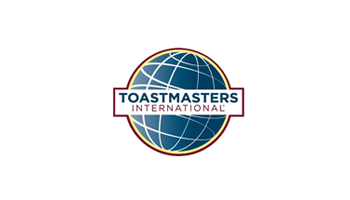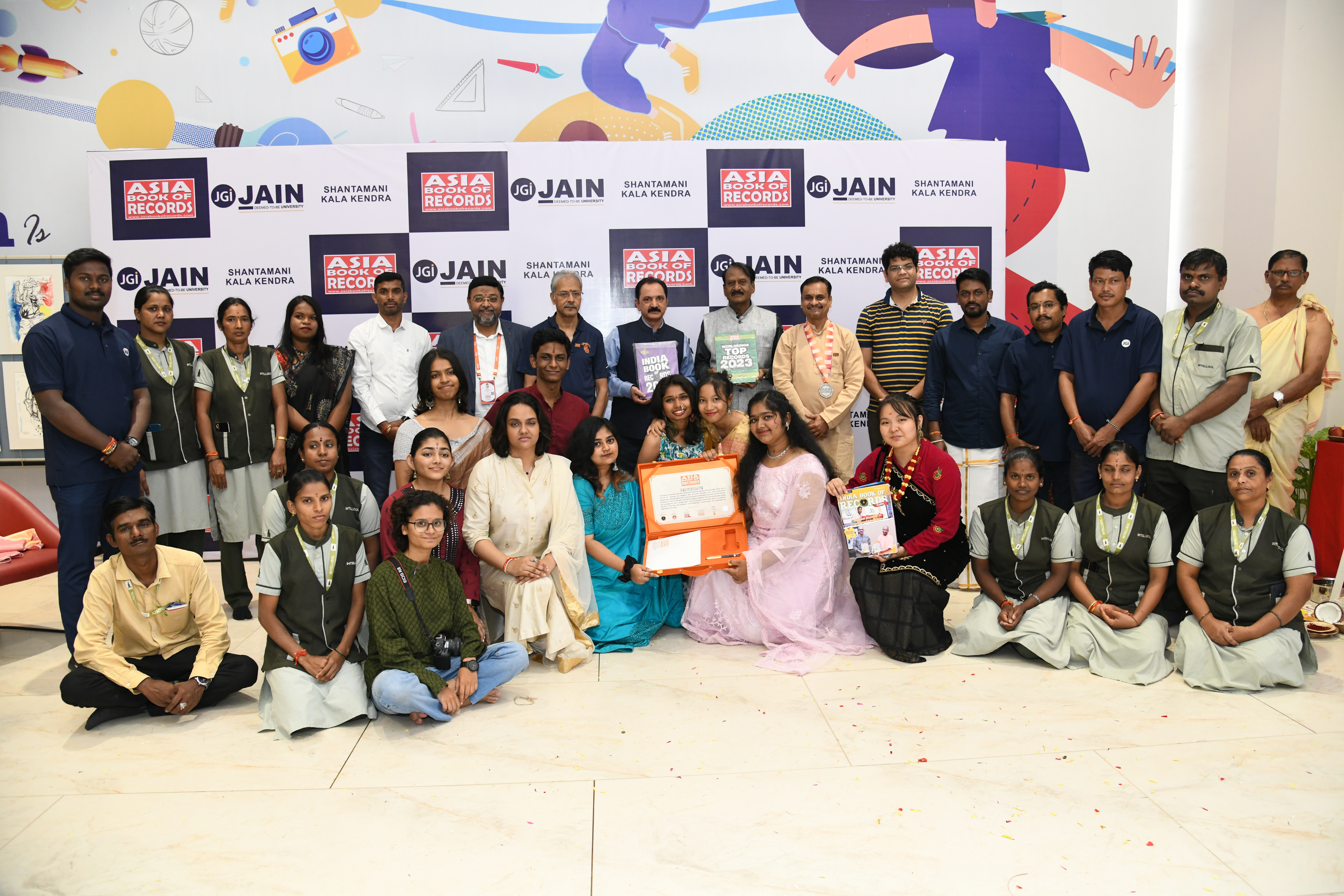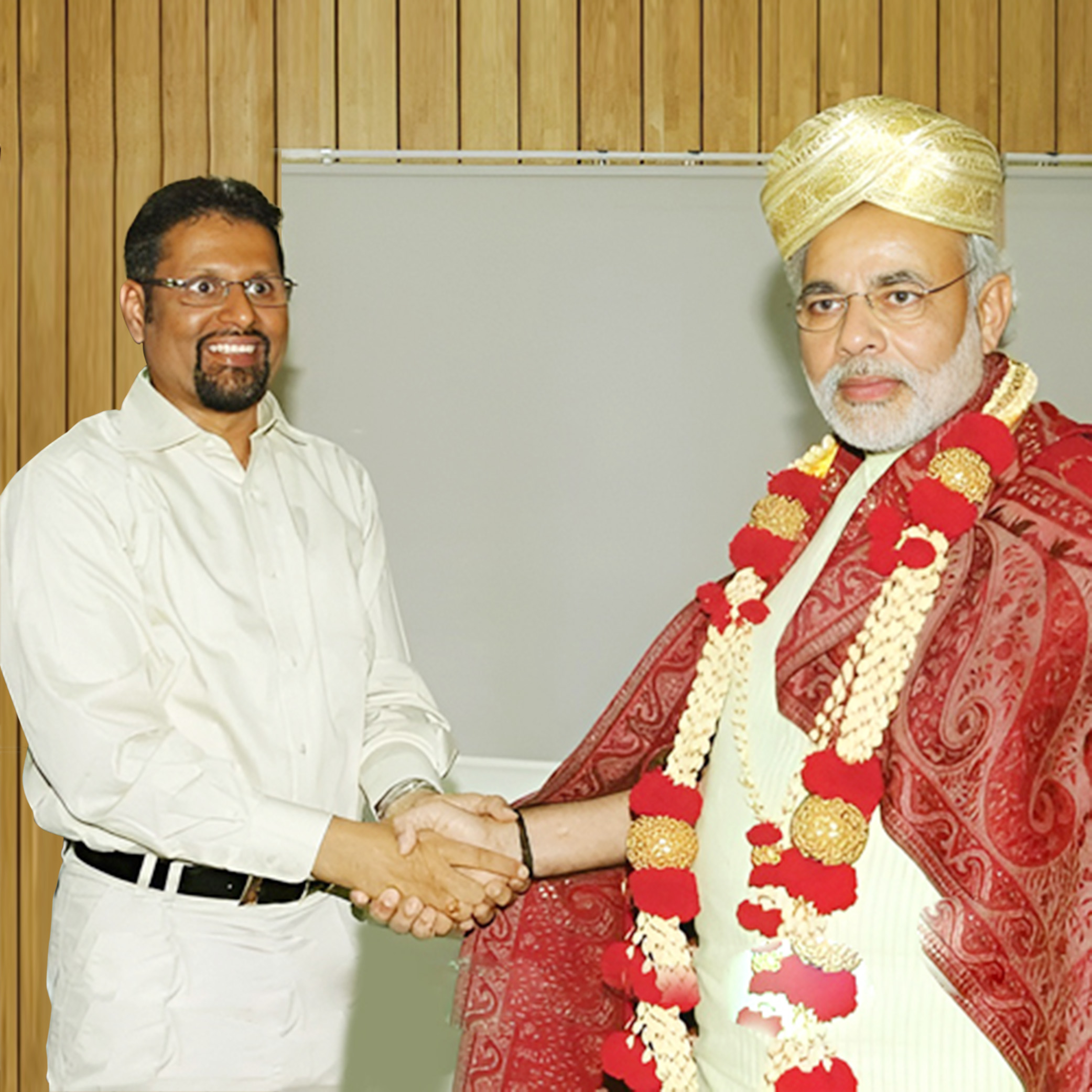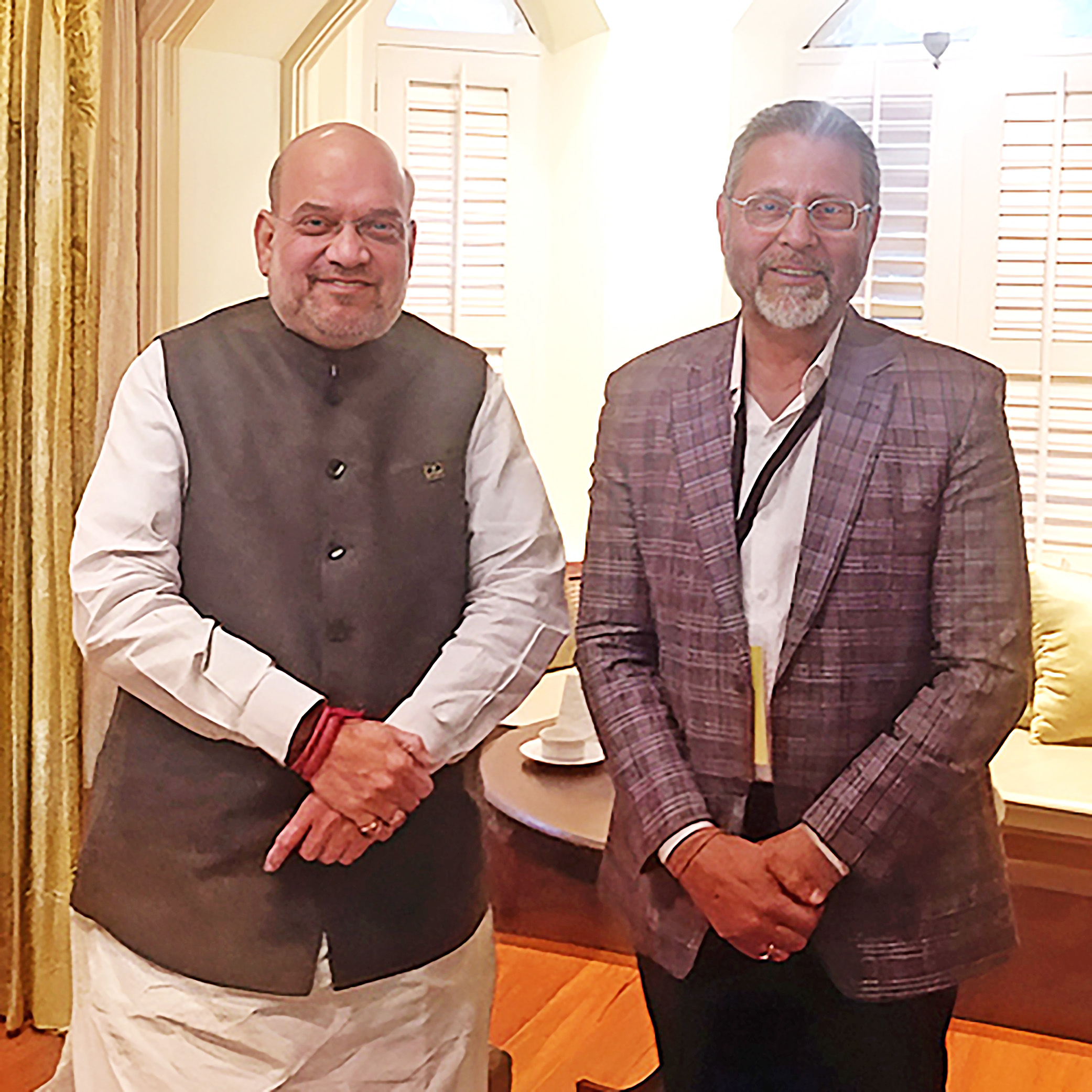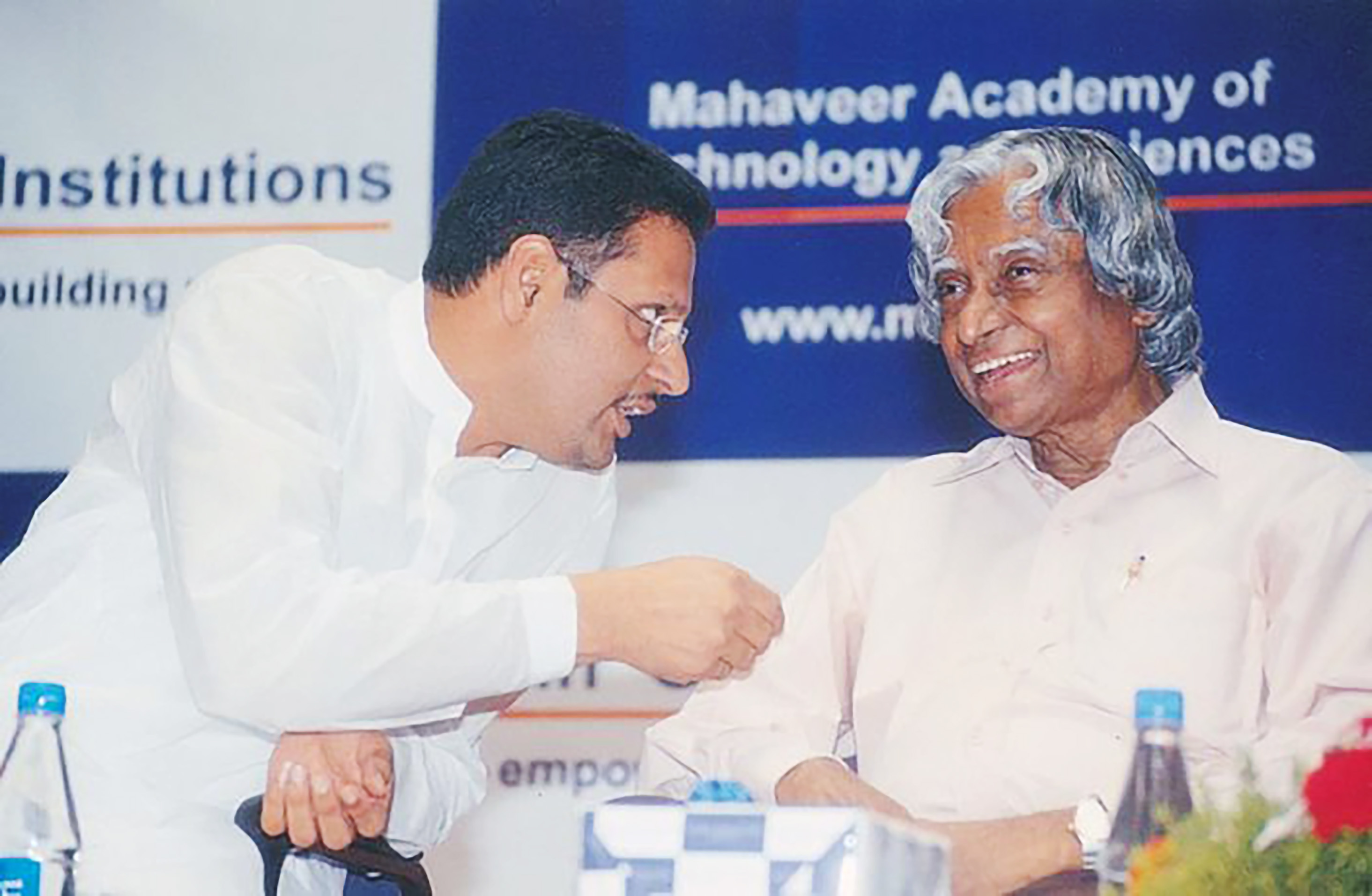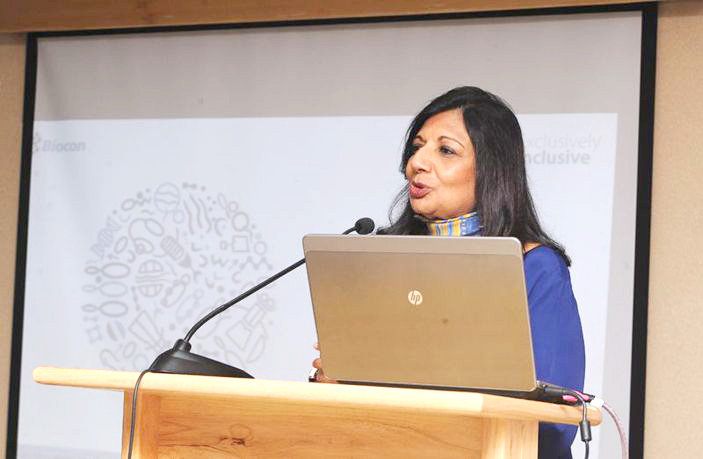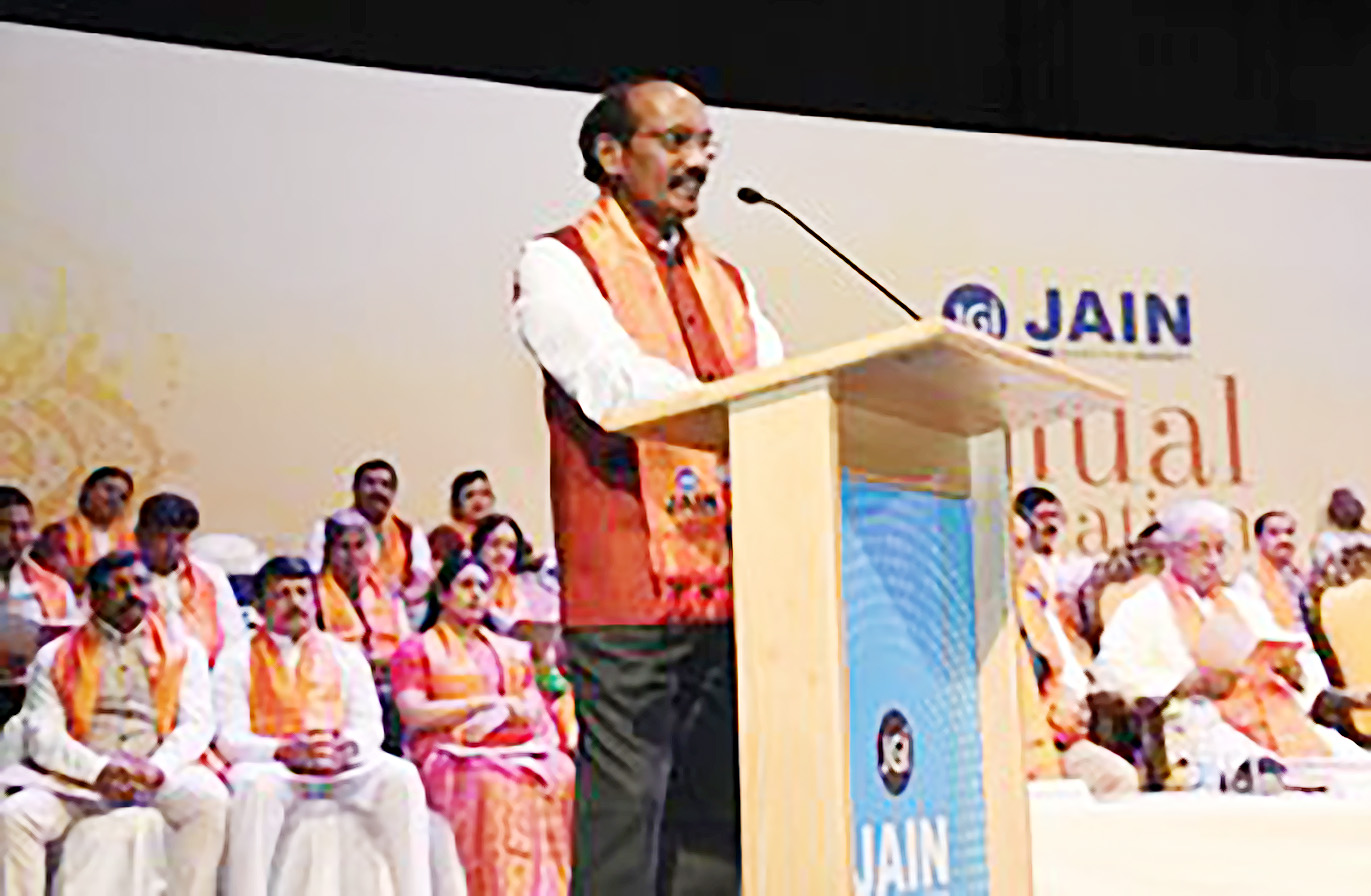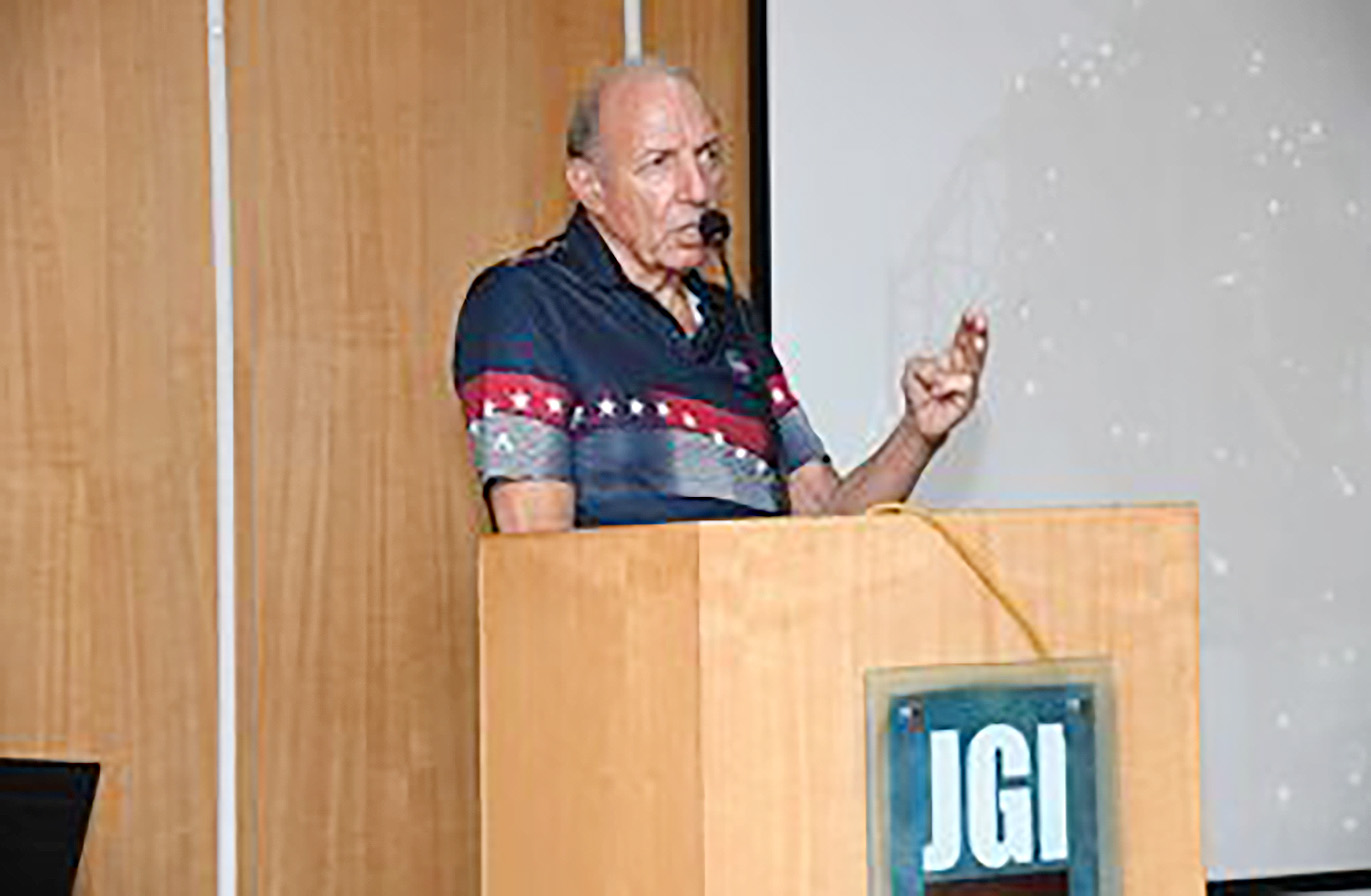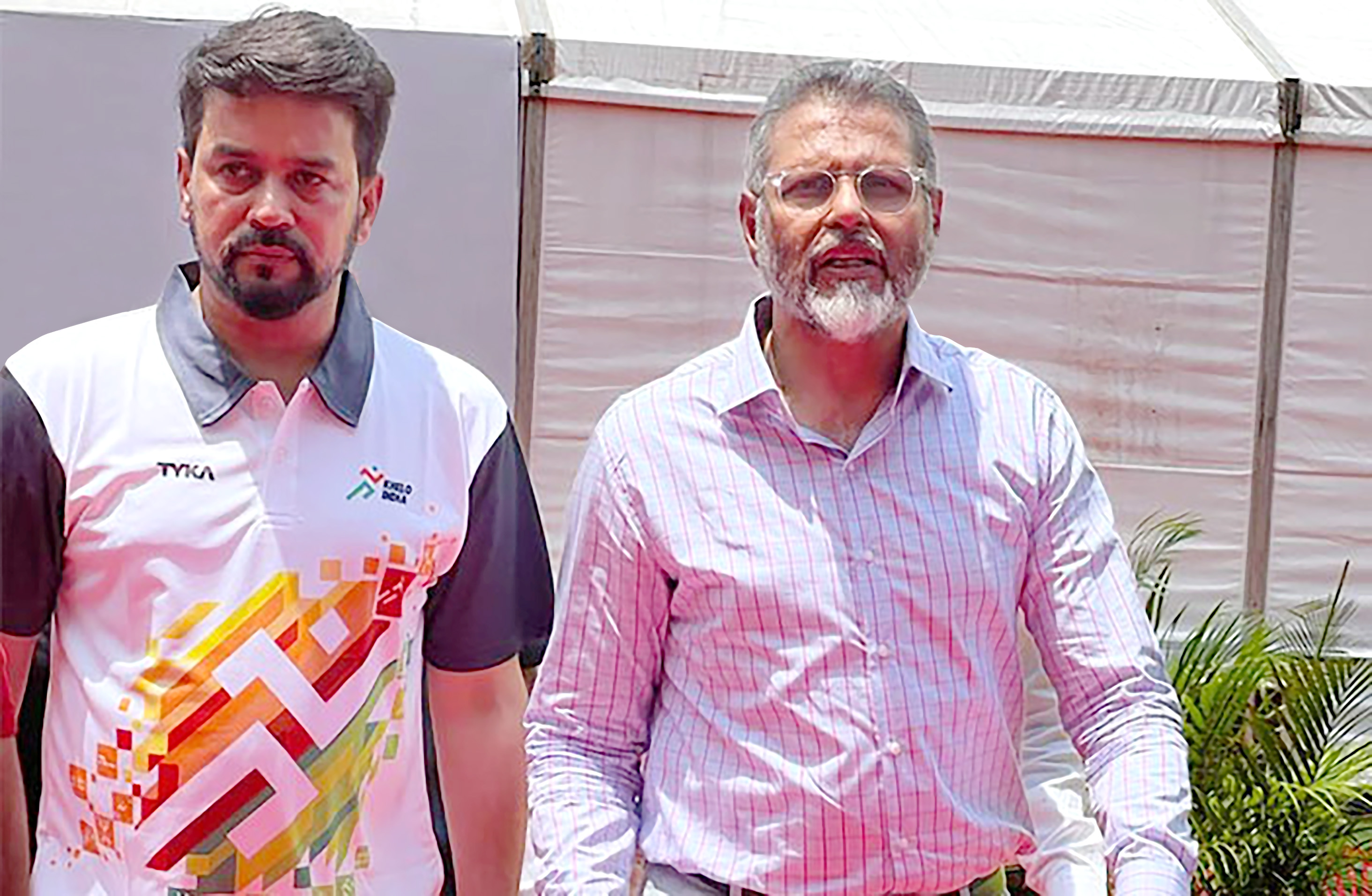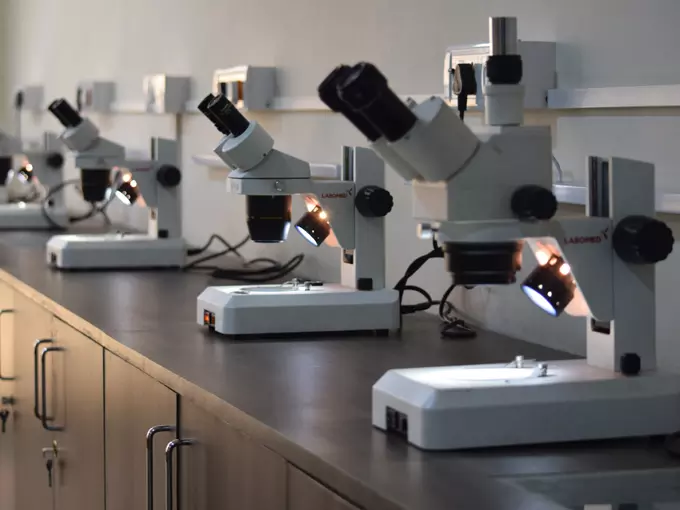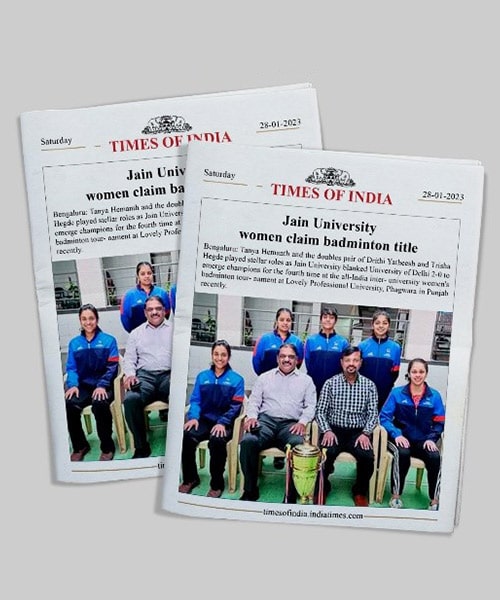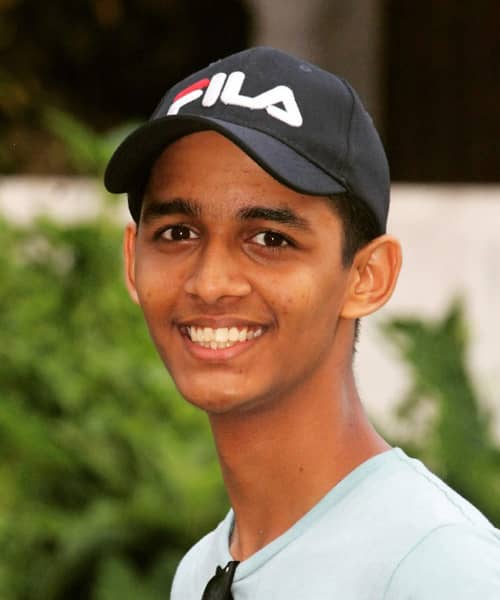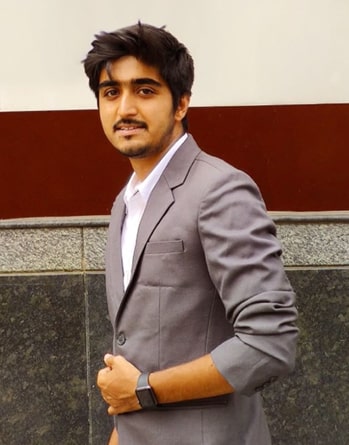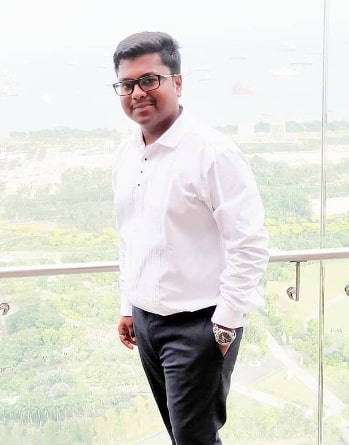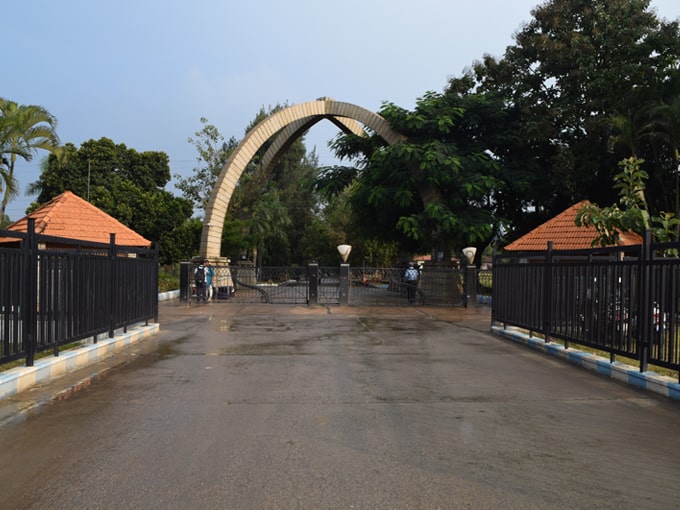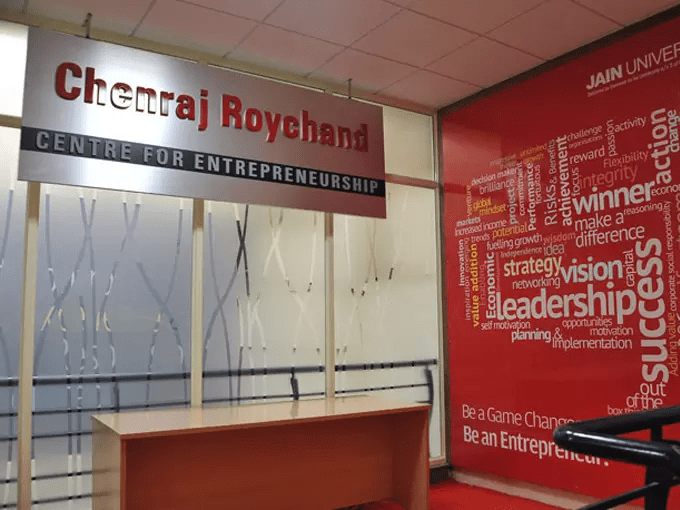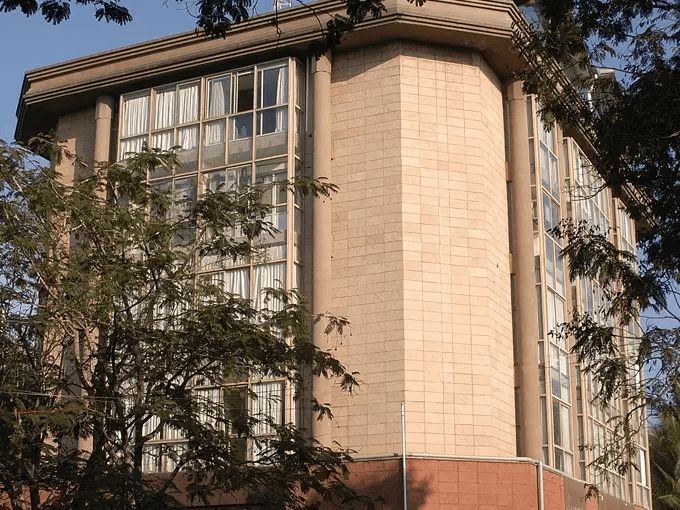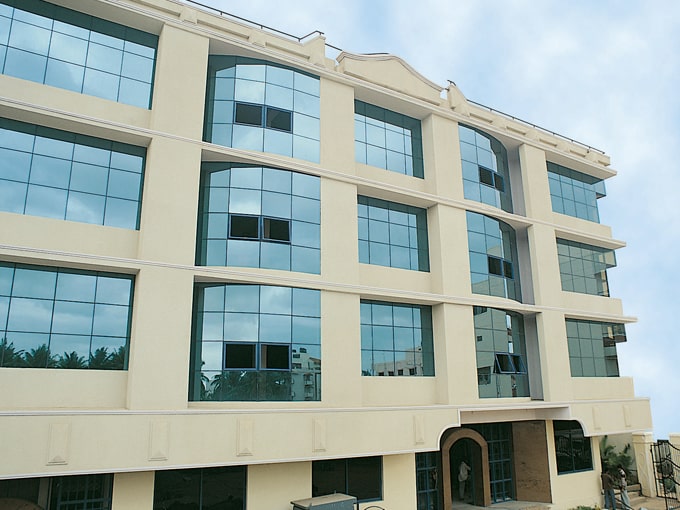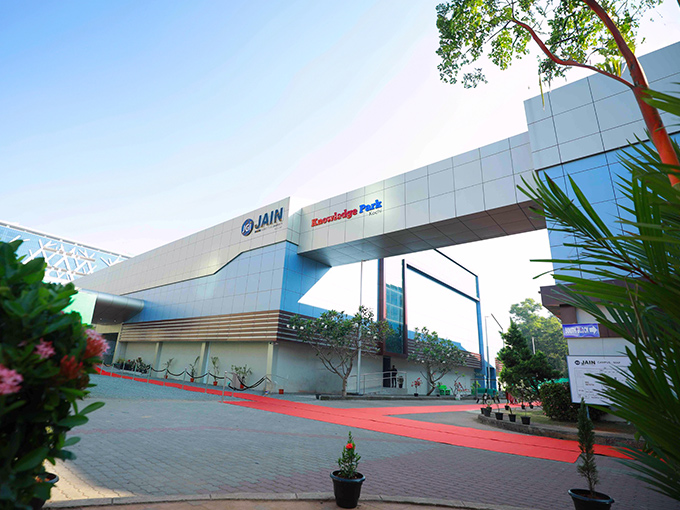MBA JET 2026 Information
PG JET 2026 Information
UG JET 2026 Information
Renowned as the best university in Bangalore, JAIN (Deemed-to-be University) promoted by JAIN Trust (JAIN University Trust) creates an exceptional space for an enhanced learning experience. The vibrant culture of the University has embraced innovation, and its entrepreneurial perspective encourages students, staff, and faculty to challenge convention, lead discovery, and explore new ways of learning. With a wide range of programs and faculties, JAIN (Deemed-to-be University) stands out as a beacon of academic excellence in the city, offering some of the best courses in Bangalore. Whether engineering, management, arts, design, or sciences, students at JAIN (Deemed-to-be University) have access to top-notch education and resources at a top university in Bangalore to pursue their academic and professional aspirations.
Candidates with the following competitive exam scores / percentile are exempted from the Written Test and can directly appear for Essay Writing, Presentation and Personal Interview.
For more details on JET, please Click Here
| Competitive Exam | Minimum Score / Percentile |
|---|---|
| September, December 2025, February, May MAT 2026 | Score of 550 and above |
| NMAT 2025-26 | Score of 160 and above |
| CAT 2025 | Score of 50 percentile and above |
| GMAT 2025-26 | Score of 50 percentile and above |
| CMAT 2026 | Score of 50 percentile and above |
| XAT 2026 | Score of 50 percentile and above |
Discover a comprehensive spectrum of industry-oriented courses designed to equip you with skills and knowledge to respond effectively in a rapidly changing business environment only at CMS Business School
NAAC rates JAIN (Deemed-to-be University) A++ grade with a CGPA of 3.71 on a four-point scale
CMS Business School gets accredited by National Board of Accreditation (NBA) for its MBA programme from the academic year 2022-23 upto 2024-25
NIRF Ranking (2025) - JAIN (Deemed-to-be University) ranks 62nd in India
AAAA+ rating under the central/deemed/state private universities for the academic year 2022.
The University is proud to announce that our distinguished alumna, Nabila Jamal, has been recognised in the Women Icons of India - Power 100 List, a prestigious national honour celebrating women who demonstrate leadership, influence and measurable impact within their respective fields.
This recognition reflects not only her professional distinction and steadfast commitment to excellence, but also the strength of purpose and intellectual foundation cultivated during her time at the University. Her inclusion in this distinguished list stands as a testament to her sustained contributions, strategic vision and forward-looking leadership.
We extend our warmest congratulations to Nabila Jamal on this well-deserved recognition and commend her for exemplifying the values of excellence, integrity and purposeful leadership that define our alumni community.
Bengaluru, 27th February 2026: Students from Reverva, the environment club of Arthaastra - The Economics Forum, actively participated in the Great Backyard Bird Count (GBBC) 2026 at Puttenahalli Lake. The international citizen-science initiative, coordinated by the Cornell Lab of Ornithology and the National Audubon Society, engages volunteers worldwide to document bird species over four days.
The Bengaluru event, organised by the Puttenahalli Neighbourhood Lake Improvement Trust, highlighted community-driven urban ecological restoration. Reverva’s participation reflected a commitment to interdisciplinary learning, demonstrating how environmental sustainability, biodiversity, and urban commons intersect with economic study.
Students underwent orientation sessions on bird identification, followed by field observation, systematic counting, and data compilation for submission to the official GBBC platform. Discussions addressed urban biodiversity trends, ecological impacts of infrastructure, and economic implications of environmental degradation.
Over 20 students, guided by faculty coordinators Dr Jennifer Fernandes and Ms Sanchita Saikia and student coordinators Ms Manya Sharma, Ms Anchal Priya, Ms Harshitha Rakesh, Ms Vindhya Shree, and Ms Samiya Assuphatri, developed skills in observation, analysis, teamwork, and community engagement.
The activity underscored:
Participation demonstrated how academic knowledge can be applied to societal and environmental challenges. It strengthened collaboration between Arthaastra and local civil society, reinforced experiential learning, and promoted responsible citizenship.
Reverva’s involvement in GBBC 2026 exemplifies how higher education can integrate environmental stewardship into academic training, ensuring that future economists remain conscious of the ecological foundations of economic systems.
Bengaluru, 25th January 2026 - Pinkathon Bengaluru 2026 was held on 25th January 2026 at Sree Kanteerava Stadium under the theme “All Set to Paint the City Pink.” The event is part of Pinkathon, India’s largest women’s run, which focuses on promoting women’s health, fitness, and awareness about preventive healthcare.
Twenty students from the School of Sciences at JAIN (Deemed-to-be University) registered and took part in the run. Their participation reflected the institution’s support for community wellness and women’s empowerment initiatives. The students attended the early morning registration, participated in guided warm-up sessions led by professional trainers, and completed the designated run along with thousands of other participants from across Bengaluru.
The event created an inclusive and energetic environment, encouraging women of all age groups and fitness levels to participate. Along with the run, health awareness sessions and post-event activities were organised to promote the importance of regular exercise and preventive health practices.
Through this experience, students gained greater awareness of women’s health issues and the value of community-based health initiatives. The participation also encouraged teamwork, discipline, and active engagement beyond the classroom. Being part of a large public event helped students understand how health campaigns are organised at the grassroots level.
The student team was guided by faculty coordinators Mr Manjunatha R and Dr Salamun D E, who ensured smooth coordination and participation.
The involvement of the School of Sciences, JAIN (Deemed-to-be University) in Pinkathon Bengaluru 2026 reflects the university’s continued commitment to holistic education, community outreach, and the promotion of health-conscious practices among students.
The University has established tie-ups with prominent Research International and Research National organizations to provide a plethora of opportunities to its students and faculty in the field of research and education.
JAIN (Deemed-to-be University) is a leading institution for higher education that attracts students from over 50 countries, providing a dynamic environment for their educational journey. The university has 21,205 students on ten campuses and promotes diversity and inclusivity. Here, 1,370 committed faculty members support students' academic pursuits for a well-rounded learning experience. There is a wide range of academic programs available, including 88 undergraduates, 55 postgraduates, and PG diploma programs designed to meet the needs of various industries. The university's commitment to excellence is demonstrated by placing 35,984 graduates in prestigious positions with the help of a network of over 600 recruiters.
Students can take their pick from several fests like the CMS Festival,Cranium, Infinity, Samanvaya, Taru Samkruti, Corporate Expo, and Science Model Expo to showcase their talents; if they feel like making a statement through a marathon, there is the My Country Run; and for those who want to make an impact through social causes, they can try NCC, NSS, Radio Active - CR 90.4 MHz, Sampradaana, Anna Seva, and SEED.
JAIN (Deemed-to-be University) has achieved a remarkable placement rate of 93.12% for the academic year 2023-24, showcasing its strong commitment to student success. In addition to academics, the university promotes innovation and entrepreneurship through programs like CRCE and JUiNCUBATOR, which offer students opportunities to develop their creative abilities along with several prospects for intellectual and personal growth, from lively festivals to insightful conferences and workshops. Come join us on a transformative journey where limitless possibilities can turn dreams into reality.
At JU-SDMCA, the students, teachers and staff joined hands with Shantamani Kala Kendra to construct the world's largest eco-friendly Ganesh idol. We are proud to share that the Asia Book of World Records recognised this achievement. Beyond being a monumental feat, the idol stands as a symbol of an environmentally conscious celebration. Let us all work towards a future where art and sustainability can flourish harmoniously. Know More
JAIN (Deemed-to-be University) Signs MoU with Yarsi University, Jakarta Indonesia, to collaborate and take up multiple academic activities for holistic development of students. Know More
JAIN (Deemed-to-be University) and SoDMCA signed a Memorandum of Understanding (MOU) with Eonten Studios. The signing ceremony took place at the SoDMCA campus in the presence of Mr. Subramaniam Venkat, co-founder of Eonten Studios, Dr. Jitendra Kumar Mishra, Registrar, Mr. Sathish Narayanan, CEO, Dr. Suman, and Mr. Varunan from JAIN (Deemed-to-be University). This collaboration stands as a testament to their shared vision.
The primary objective of this MOU is to bridge the gap between industry and academia, creating a dynamic learning environment beyond traditional classrooms. Numerous projects are slated to be undertaken as part of this collaboration, including the incubation of a studio and the development of specialized courses for both students and faculty.
JAIN (Deemed to be University) conducted its 12th convocation for the academic year 2022. A community of 6629 students were a part of the convocation, out of which 125 students were presented with gold medals and 329 rank holders were honoured by the University. The programme was graced by Shri. S.D. Shibulal Co-founder Infosys and Axilor Ventures as the Chief Guest.
Know More
JAIN (Deemed-to-be University) Signs MoU with Yarsi University, Jakarta Indonesia, to collaborate and take up multiple academic activities for holistic development of students. Know More
JAIN (Deemed-to-be University) and SoDMCA signed a Memorandum of Understanding (MOU) with Eonten Studios. The signing ceremony took place at the SoDMCA campus in the presence of Mr. Subramaniam Venkat, co-founder of Eonten Studios, Dr. Jitendra Kumar Mishra, Registrar, Mr. Sathish Narayanan, CEO, Dr. Suman, and Mr. Varunan from JAIN (Deemed-to-be University). This collaboration stands as a testament to their shared vision.
The primary objective of this MOU is to bridge the gap between industry and academia, creating a dynamic learning environment beyond traditional classrooms. Numerous projects are slated to be undertaken as part of this collaboration, including the incubation of a studio and the development of specialized courses for both students and faculty.
The research centers at JAIN focus on finding solutions to disruptive interdisciplinary/cross disciplinary research problems that will have a significant societal and/or economic impact.

Chetas Murali, a B. Tech - CSE (AI) student from the Faculty of Engineering and Technology notches the CTC of 42 LPA at Finkraft during campus placement
Amogh Tadamari, a final year MBA student studying Finance at the University, has bagged the package of 30 lakhs per annum at Multibook Limited as an SAP consultant.
Chandan Arun Kumar, a student from CMS B School pursuing an MBA in International Finance and Account, was recruited as an SAP Consultant by Multibook Limited with the package of 30 lakhs PA.
Sana Greeshma, a student pursuing B.Tech at the faculty of engineering and technology, notches the highest remuneration package of 32 Lakhs/PA at the JSOL Corporation (Japan) during campus placement.

The University has established tie-ups with various International Universities to offer study programs that would help the students and faculty gain an international perspective in their chosen field of study. Such collaborations generate an opportunity for student and faculty exchange amongst Universities.
It is difficult to create an environment that is challenging, focused as well as lively. Being at JAIN (Deemed-to-be University) offers me this unique blend and understanding of my chosen discipline and its multiple facets.
Kigali, Rwanda
I came. I saw and I loved it. JAIN (Deemed-to-be University) offered me just the right combination I was looking for. A strong industry-oriented curriculum with research component, qualified faculty, strong ties to the corporate world and opportunity to study in a multi cultural setting.
Kyiv, Ukraine
Among other things, I chose JAIN (Deemed-to-be University) because of the excellence infrastructure and state-of-the-art laboratories providing a host of opportunities not only for practical exposure but inter-disciplinary teaching and learning.
Bujumbura, Burundi
It is difficult to create an environment that is challenging, focused as well as lively. Being at JAIN (Deemed-to-be University) offers me this unique blend and understanding of my chosen discipline and its multiple facets.
Kigali, Rwanda
The curriculum and the syllabus at the institute meet global standards and the learning environment is just perfect. We have so many projects and activities that help us a great deal in gaining practical knowledge and have a hands-on experience. This University is the place to be for learning advanced technology and be future-ready.
Tanzania
I was looking for institutes that offered specialization in Embedded System Technologies and JAIN (Deemed-to-be University) was right on top of the chart. I am so happy to be here because not only I have an enhanced learning environment here, this University is best for international students seeking to come to India for higher education. It provides them an amazing learning environment that opens up a world full of opportunities. I am so excited for the opportunities opening up for me.
Sudan
I got to pursue my dream goals. It is the only institute in the country to offer Artificial Intelligence as a specialization in Computer Science Engineering and the environment is very safe and friendly. The faculty is amazing and has everything an International students looks for when coming to India for education.
Dubai
I am made the best choice for pursuing degree education with JAIN (Deemed-to-be University).It has high-end lab facilities, encouraging faculty and an overall inspiring campus that brings out the best in you.
Ethiopia
As the top technology institute in India, it prepares you to become the best and stand out from the rest. With a campus that supports your vision with a quality education which stands tall and strong on the pillars of practical work, fully equipped modern labs, libraries, and top-notch faculty.
Ethiopia
















